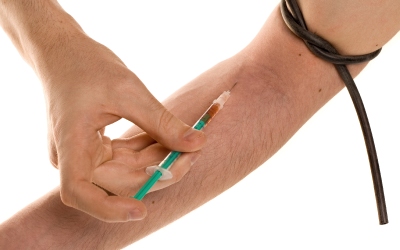How Does Methadone Work As A Heroin Replacement?
For drug addicts, giving up cold turkey can be incredibly hard, and even impossible for some. When you stop taking heroin, methadone can be a useful way of preventing or reducing the unpleasant side effects of withdrawal. A lot of heroin addicts stay on methadone for a long time but some people gradually reduce the dose so that they can become clean from drugs. It’s important to not take any street drugs or consume much alcohol when you’re taking methadone. For those addicted to heroin, withdrawal symptoms develop within a day or so from the last dose. If you need a regular hit of heroin in order to feel normal, you will be classified as an addict. The symptoms of withdrawal include sweating, feeling hot and cold, yawning, a lack of appetite, runny eyes and nose, stomach cramps, tremors, feeling sick or vomiting, poor sleep, restlessness, and general aches and pains. The symptoms tend to pass within five days, but by then you may have a persistent craving for heroin and be extremely tired. Methadone is a drug which is similar to heroin but it lasts longer within the body, so it can be prescribed and you will be unlikely to get withdrawal symptoms from the heroin. Doctors can prescribe methadone because you will then be less likely to continue on the drug scene, more likely to feel better in yourself, and more likely to get off drugs. Most GPs will refer you to a community drug team in order to be assessed. After this assessment, a member of the community drug team will make quick contact with your GP in order to ensure you get a dose of methadone. However, if your GP is specially trained they will be able to assess your case without the need for a referral.
An assessment generally involves taking details of your health and current circumstances, details of your past and current drug taking, and examination, a urine test to confirm which drugs you’re taking, and an assessment of what you think you need at the time. If you’ve been injecting the drug, it’s also common to do a blood test to check for HIV or hepatitis, as well as offer immunisation against hepatitis if you’re not already. Methadone is generally started with a timescale in mind so that the results can be assessed. The aim of this drug is to prevent withdrawal symptoms, so your circumstances will be taken into account before your dose is prescribed. Usually, the first dose will be low so that you can get used to it, then it will be increased if need be later on. It usually takes between two and four hours to take effect, and it accumulates within the body so you will feel a greater effect a few days after taking it even though you’ve not increased the dose. it may take your GP a few weeks to determine which dose is appropriate for your needs. It’s important to remember that you may have some or partial withdrawal symptoms until you’ve found the right dose, and this varies from person to person. If taken correctly though, it can offer an effective way of getting off drugs. This drug is usually prescribed as a once-daily dose which is in a liquid form. You will need to take it under the supervision of a pharmacist who will dispense it to you. It’s vital that it’s taken regularly, as any missed doses may mean that you lose the ability to break down your tolerance to heroin.

Comments are closed.